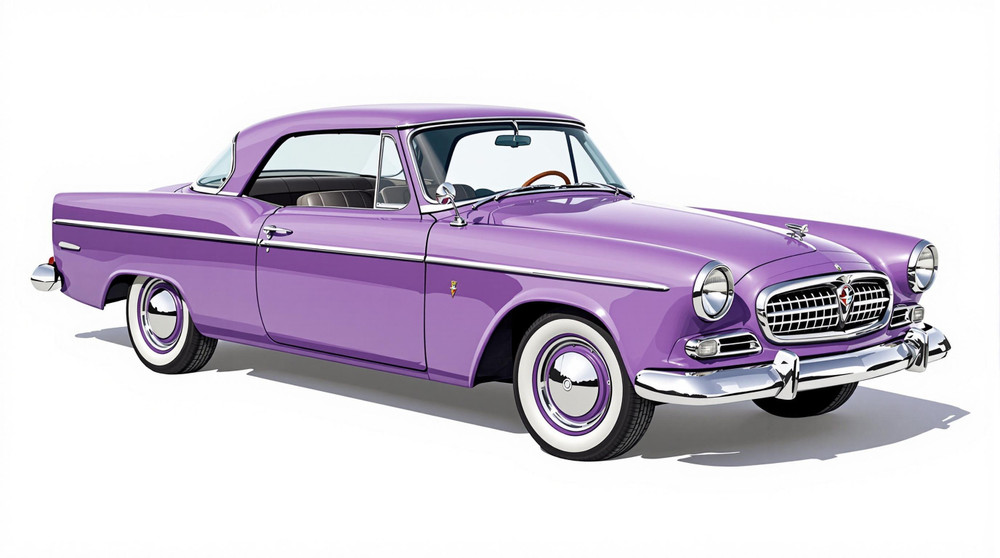Image of 1956 Studebaker Commander, Note: These illustrations use artistic license and may differ from actual historical models.
Performance Metrics
Fundamental Metrics
Emotional Appeal
MMP Rating
| Engine Specifications | |
|---|---|
| Engine: | 259 cu in (4.2 L) V8 |
| Displacement: | 259 cu in (4.2 L) |
| Horsepower: | 170 hp |
| Torque: | 258 lb-ft |
| Compression Ratio: | 8.25:1 |
| Ignition System: | Distributor and coil |
| Cooling System: | Liquid-cooled |
| Performance Specifications | |
| 0-60 Time: | Estimated 12 seconds |
| 1/4 Mile Time: | Estimated 18 seconds |
| Top Speed: | 100 mph |
| Transmission and Drive | |
| Drive Type: | Rear-wheel drive |
| Transmission Type: | 3-speed manual, 4-speed automatic |
| Fuel and Efficiency | |
| Fuel System Type: | Carburetor |
| MPG: | Estimated 15-20 mpg |
| Dimensions and Brakes | |
| Brakes: | Drum brakes |
| Wheelbase: | 116.5 in |
| Weight: | 3,200 lbs |
Note: Specifications for classic cars are given to the best of our ability, considering the limited and variant data available.
Introduction
The 1956 Studebaker Commander is a testament to the ingenuity and resilience of an American automaker that dared to stand out. Born in the bustling post-war era, Studebaker was a company with a rich history, tracing its roots back to the days of horse-drawn wagons. The Commander model, particularly the '56 iteration, was a blend of innovation and style that captured the spirit of the 1950s. One notable moment in this vehicle's history was its role in Studebaker's valiant effort to challenge the Big Three automakers with unique design philosophies and advanced engineering.
Design and Innovation
The exterior styling of the 1956 Studebaker Commander was a harmonious marriage of function and form. Its sleek lines and modest tail fins reflected the era's fascination with jet-age design. The front grille presented a bold, confident face, while chrome accents glistened along its body. Inside, passengers were greeted with a cabin that prioritized comfort and simplicity. Materials used ranged from durable fabrics to premium leathers in higher trims. Technologically, it boasted features like power steering and automatic transmission—luxuries at the time. Color options varied widely, with striking choices like Sun Valley Yellow and Pimlico Gray turning heads. Among body styles, the two-door pillarless hardtop caught many an eye for its clean lines and absence of a B-pillar.
Historical Significance
The 1956 Commander stood out for its daring approach to automotive design during an era dominated by larger manufacturers. It played a pivotal role in introducing features that would later become mainstream, such as wraparound windshields and updated powertrains. This model also marked one of Studebaker's final attempts to capture a significant market share before financial struggles took their toll on the company.
Performance and Handling
Underneath its hood, the '56 Commander housed a V8 engine that propelled it to respectable speeds for its time. While top speed figures hovered around 100 mph, it could go from 0-60 mph in just over 10 seconds—a commendable feat then. The car's handling was characterized by a smooth ride quality that absorbed road imperfections gracefully. Drivers often praised the vehicle for its solid feel on the road and responsive steering, making it both comfortable for cruising and capable in more spirited driving.
Ownership Experience
The Studebaker Commander served various roles from being a reliable daily driver to a cherished show car. Its mechanical simplicity meant that maintenance was straightforward for those familiar with wrenching on cars of this era. However, as with many classic vehicles, parts availability could be challenging.
Fun Facts
A few intriguing tidbits about the '56 Commander include its cameo appearances in films and television shows set in the mid-20th century, adding authenticity to period settings. While not known for breaking speed records, it did contribute to Studebaker's reputation for building sturdy vehicles capable of enduring long distances.
Collector's Information
Today, the value range for a well-maintained 1956 Studebaker Commander can vary greatly depending on condition, originality, and history. While production numbers were not as low as some of Studebaker's other offerings, finding one in pristine condition can be quite rare. As a rough estimate, values can range from $10,000 for models needing work up to $30,000 or more for show-quality examples. The market trend seems to show appreciation for these unique classics as they become rarer over time.
Conclusion
The 1956 Studebaker Commander remains an emblematic figure from an era when automotive design was as much about expression as it was about transportation. It stands as a tribute to Studebaker's commitment to innovation and individuality—a true commander on the roads of history.
1956 Studebaker Commander Catalog of Parts
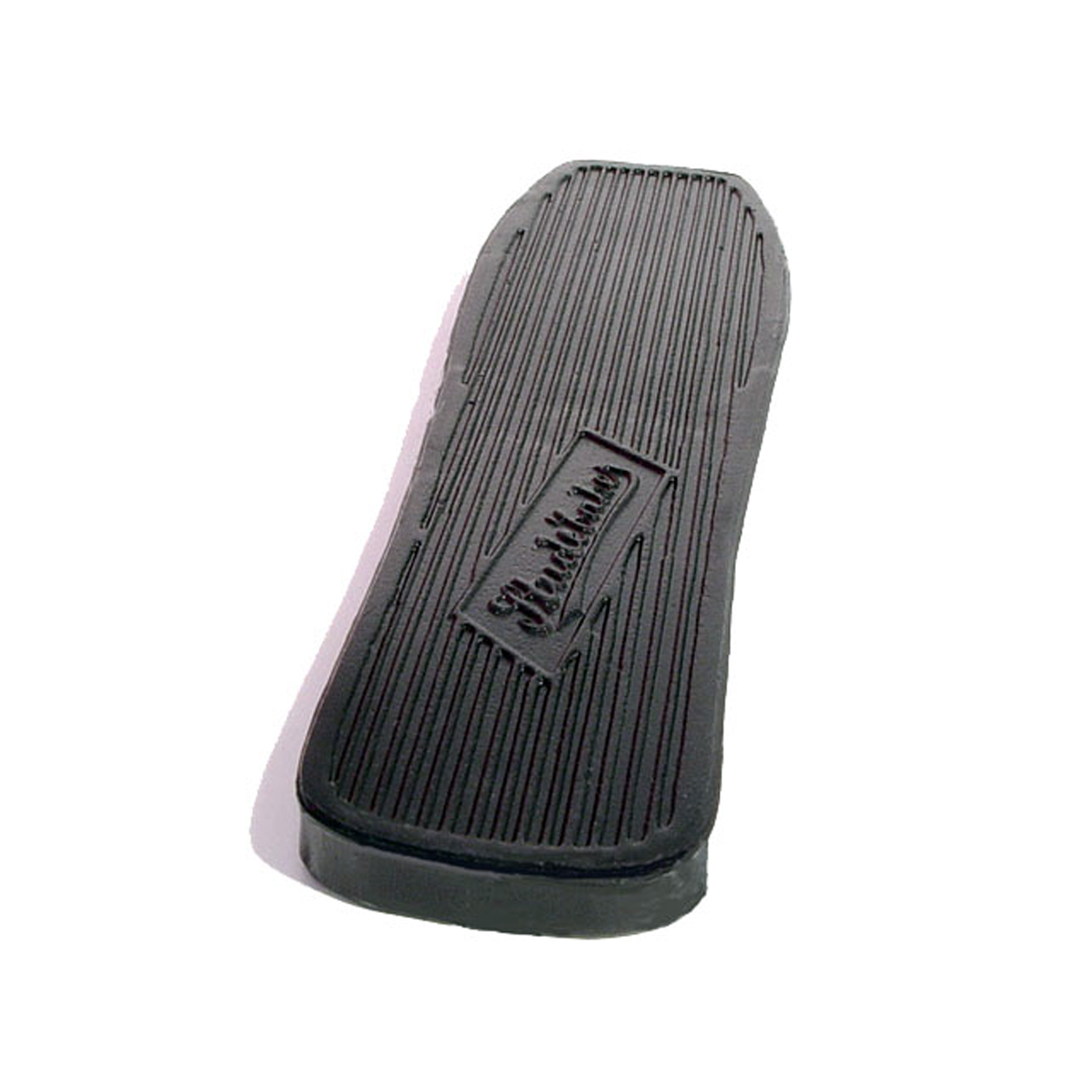 1956 Studebaker Commander Accelerator Pedal Pad, 2-3/8" X 9", Each-AP 22Accelerator Pedal Pad, 2-3/8" X 9", Each
1956 Studebaker Commander Accelerator Pedal Pad, 2-3/8" X 9", Each-AP 22Accelerator Pedal Pad, 2-3/8" X 9", Each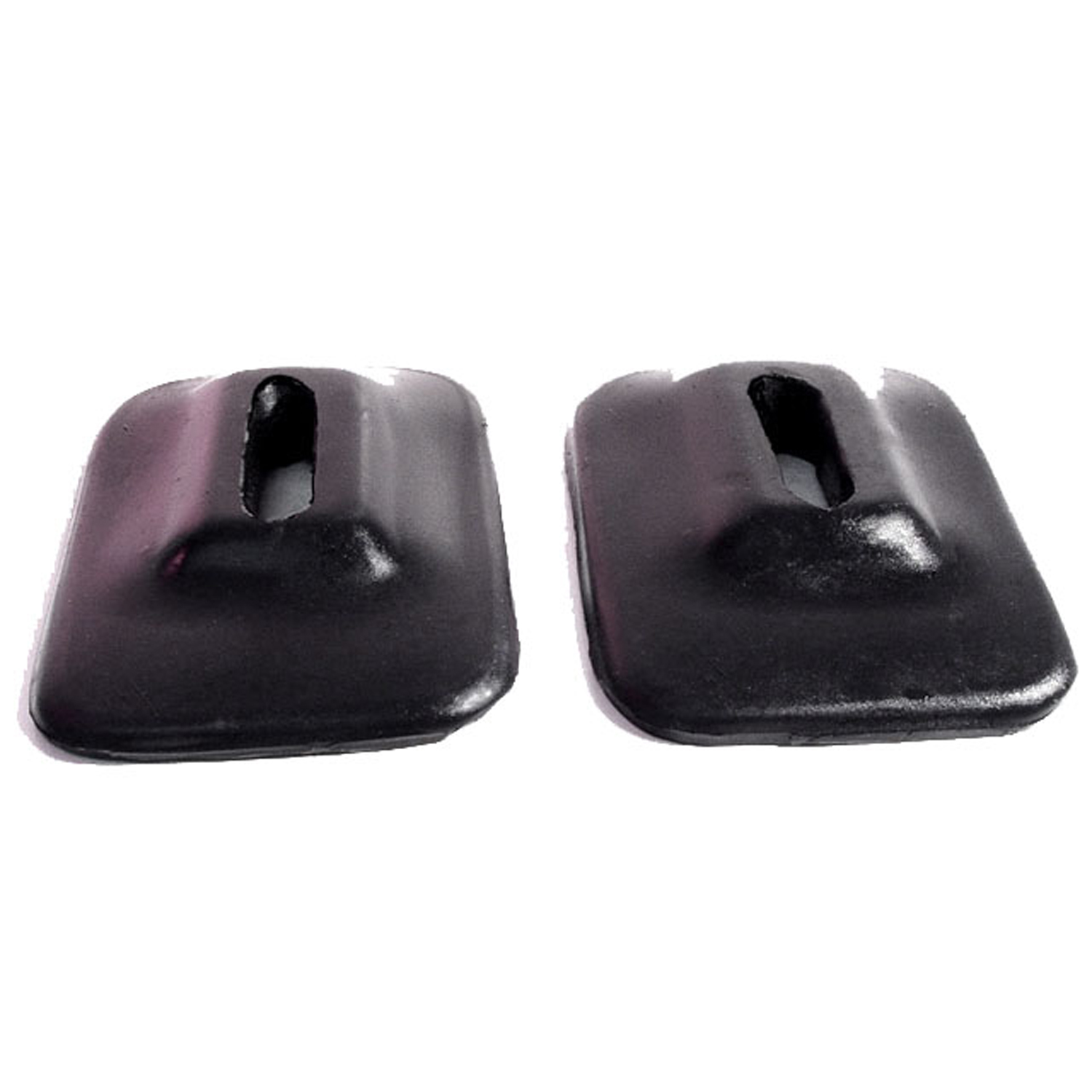 1956 Studebaker Commander Front and Rear Bumper Arm Grommets-BG 45Front and Rear Bumper Arm Grommets. 2-3/4" wide X 4-1/8" long, with 1-5/8" long inner slot. Pair
1956 Studebaker Commander Front and Rear Bumper Arm Grommets-BG 45Front and Rear Bumper Arm Grommets. 2-3/4" wide X 4-1/8" long, with 1-5/8" long inner slot. Pair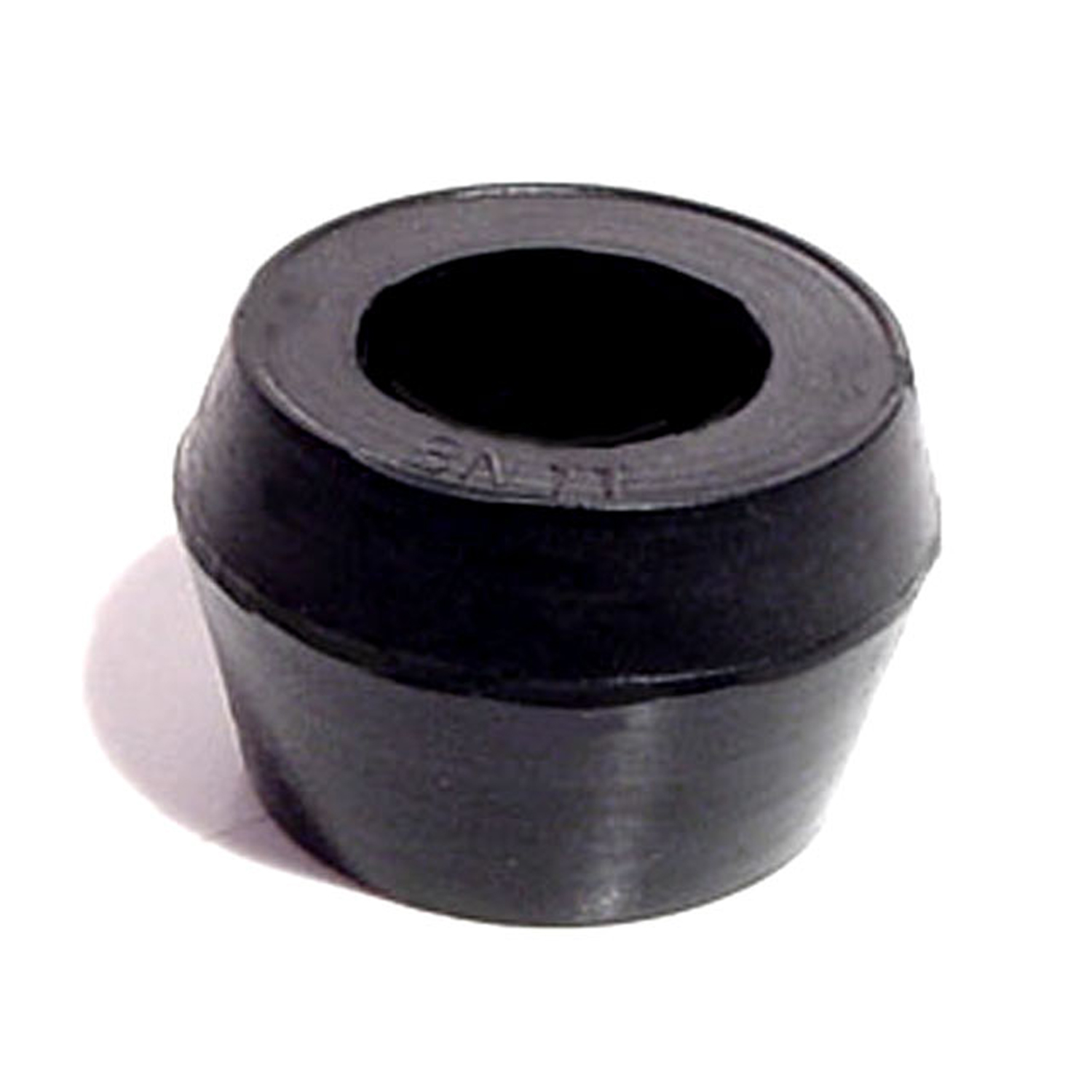 1956 Studebaker Commander Shock Absorber Grommet. 1" bottom O.D-BN 11Shock Absorber Grommet. 1" bottom O.D., 3/4" high, with 5/8" I.D. Each
1956 Studebaker Commander Shock Absorber Grommet. 1" bottom O.D-BN 11Shock Absorber Grommet. 1" bottom O.D., 3/4" high, with 5/8" I.D. Each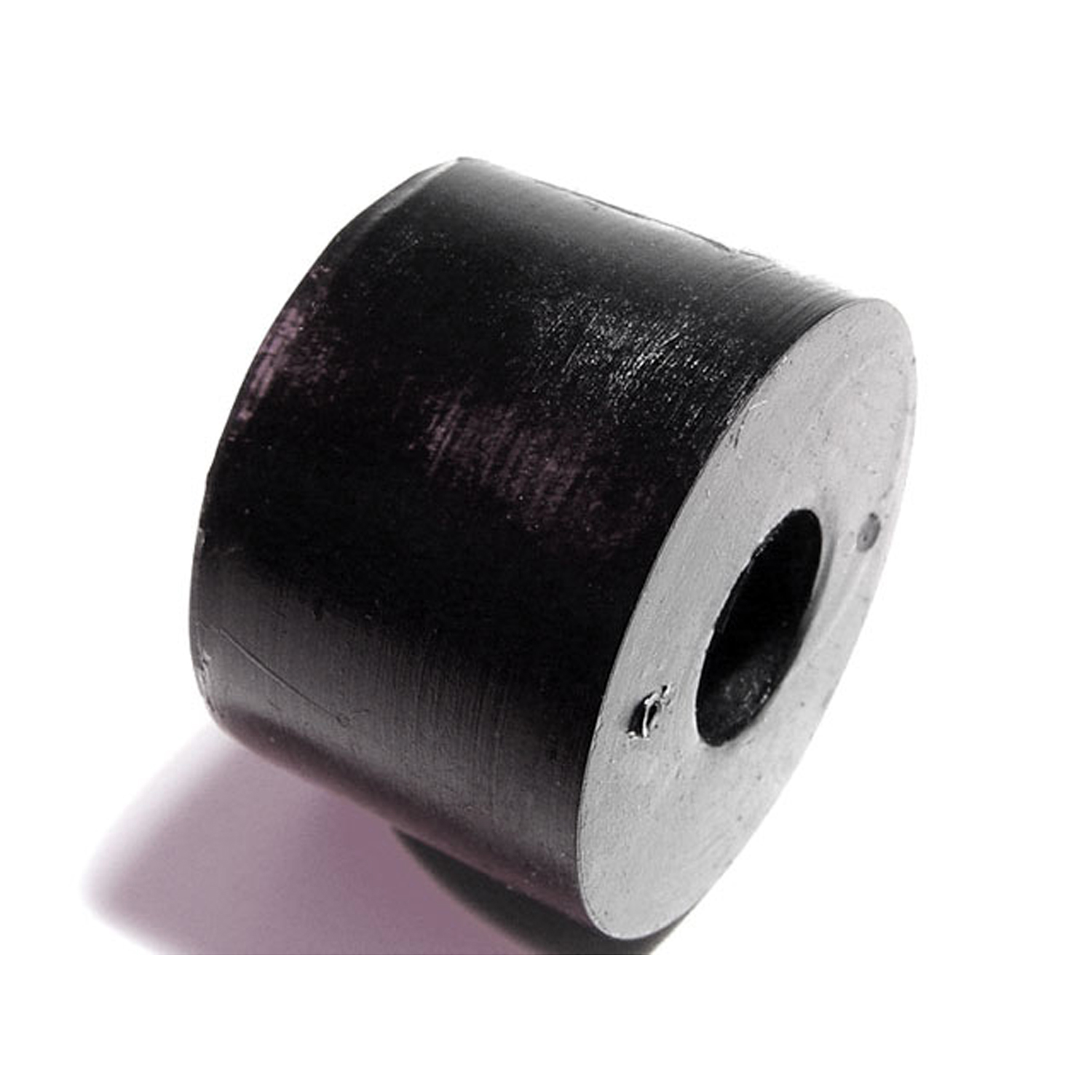 1956 Studebaker Commander Shock Absorber Grommet. 1" bottom O.D., 5/8" high-BN 13Shock Absorber Grommet. 1" bottom O.D., 5/8" high., with 3/8" I.D. Each
1956 Studebaker Commander Shock Absorber Grommet. 1" bottom O.D., 5/8" high-BN 13Shock Absorber Grommet. 1" bottom O.D., 5/8" high., with 3/8" I.D. Each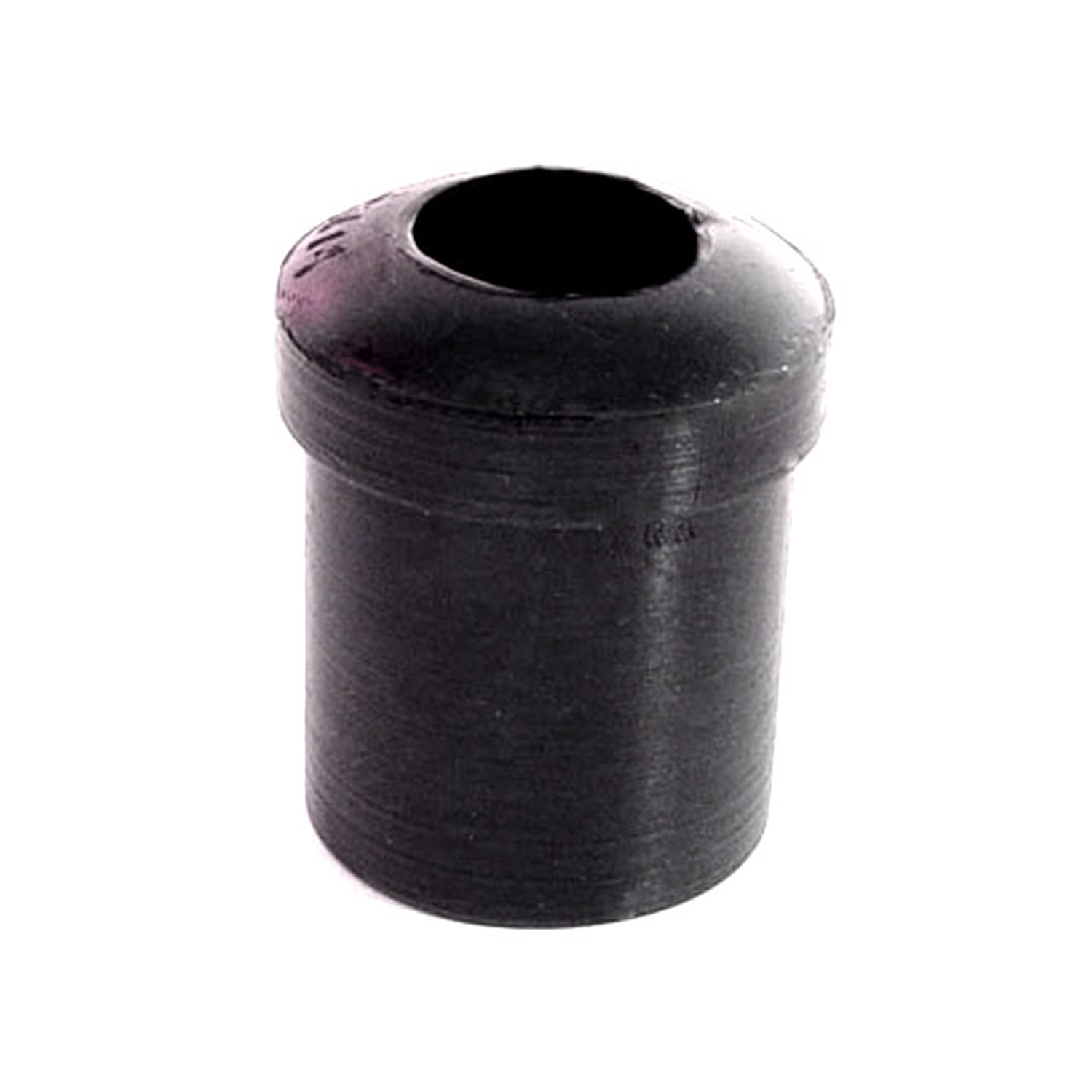 1956 Studebaker Commander Spring and Shackle Bushing. 1-1/16" bottom O.D-BN 14Spring and Shackle Bushing. 1-1/16" bottom O.D. X 1-1/2" high, with 5/8" I.D. Each
1956 Studebaker Commander Spring and Shackle Bushing. 1-1/16" bottom O.D-BN 14Spring and Shackle Bushing. 1-1/16" bottom O.D. X 1-1/2" high, with 5/8" I.D. Each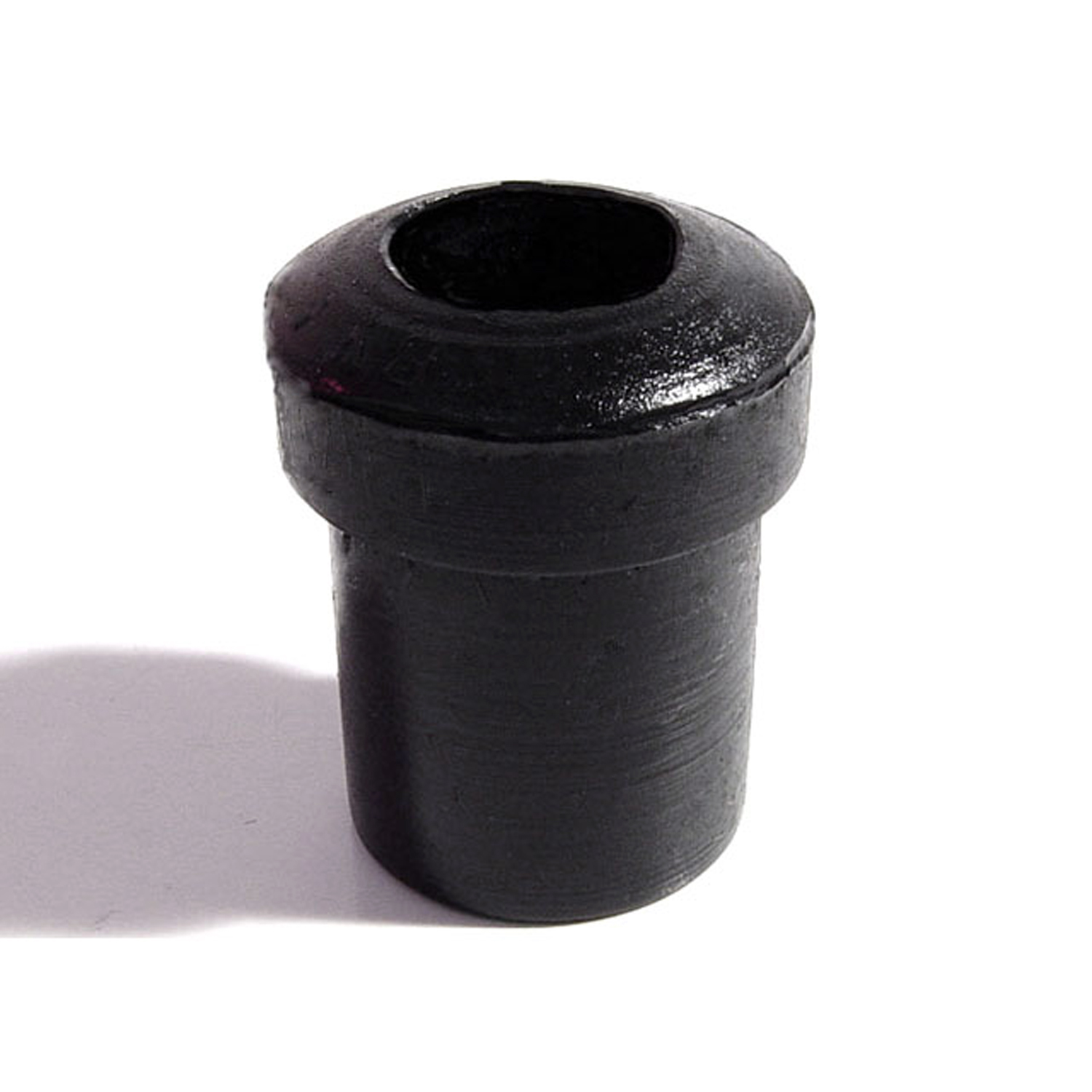 1956 Studebaker Commander Spring and Shackle Bushing. 7/8" bottom O.D-BN 16Spring and Shackle Bushing. 7/8" bottom O.D. X 1-1/8" high, with 1/2" I.D. Each
1956 Studebaker Commander Spring and Shackle Bushing. 7/8" bottom O.D-BN 16Spring and Shackle Bushing. 7/8" bottom O.D. X 1-1/8" high, with 1/2" I.D. Each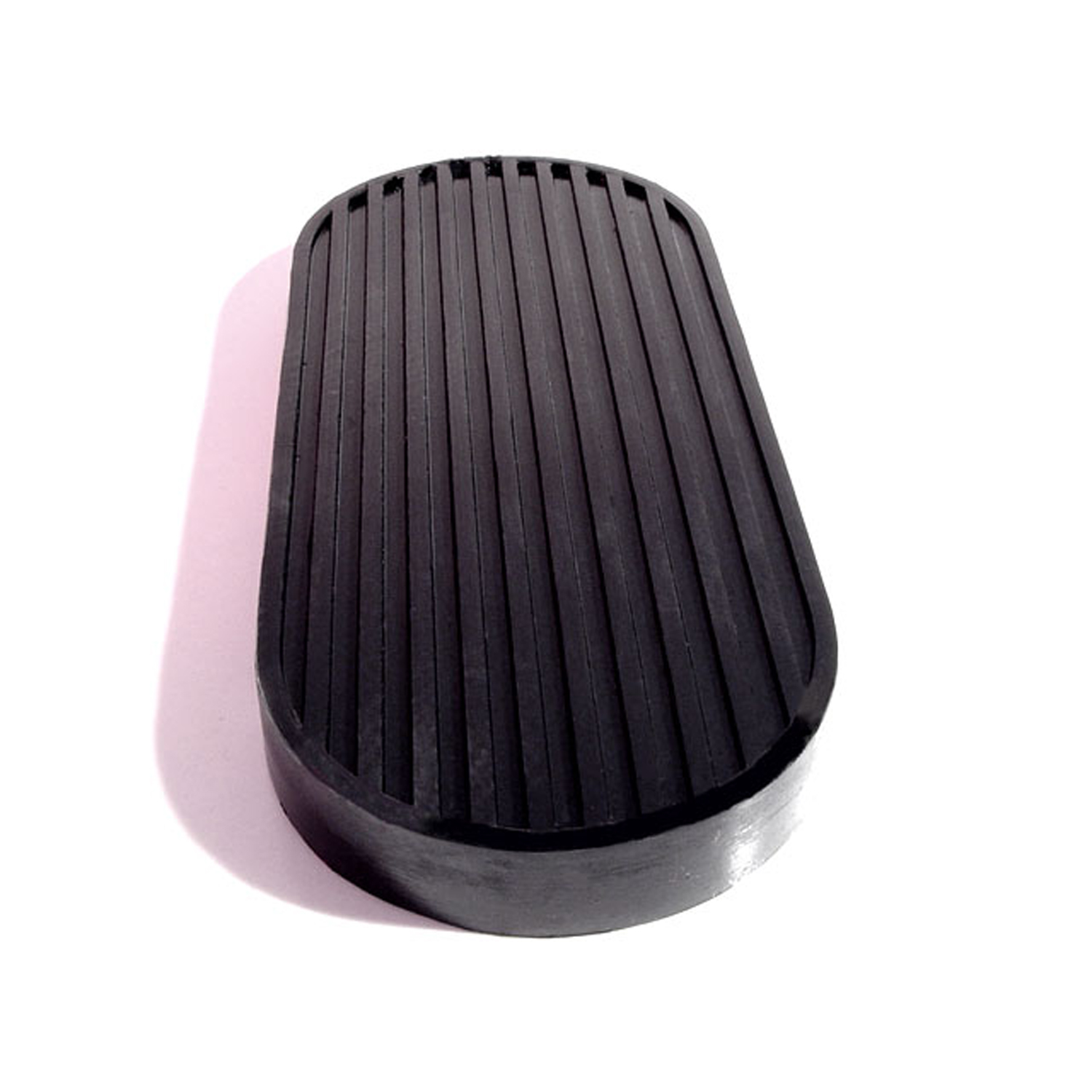 1956 Studebaker Commander Brake Pedal Pad. For models with automatic transmission-CB 87Brake Pedal Pad. For models with automatic transmission. 3" wide X 7-1/8" long. Each
1956 Studebaker Commander Brake Pedal Pad. For models with automatic transmission-CB 87Brake Pedal Pad. For models with automatic transmission. 3" wide X 7-1/8" long. Each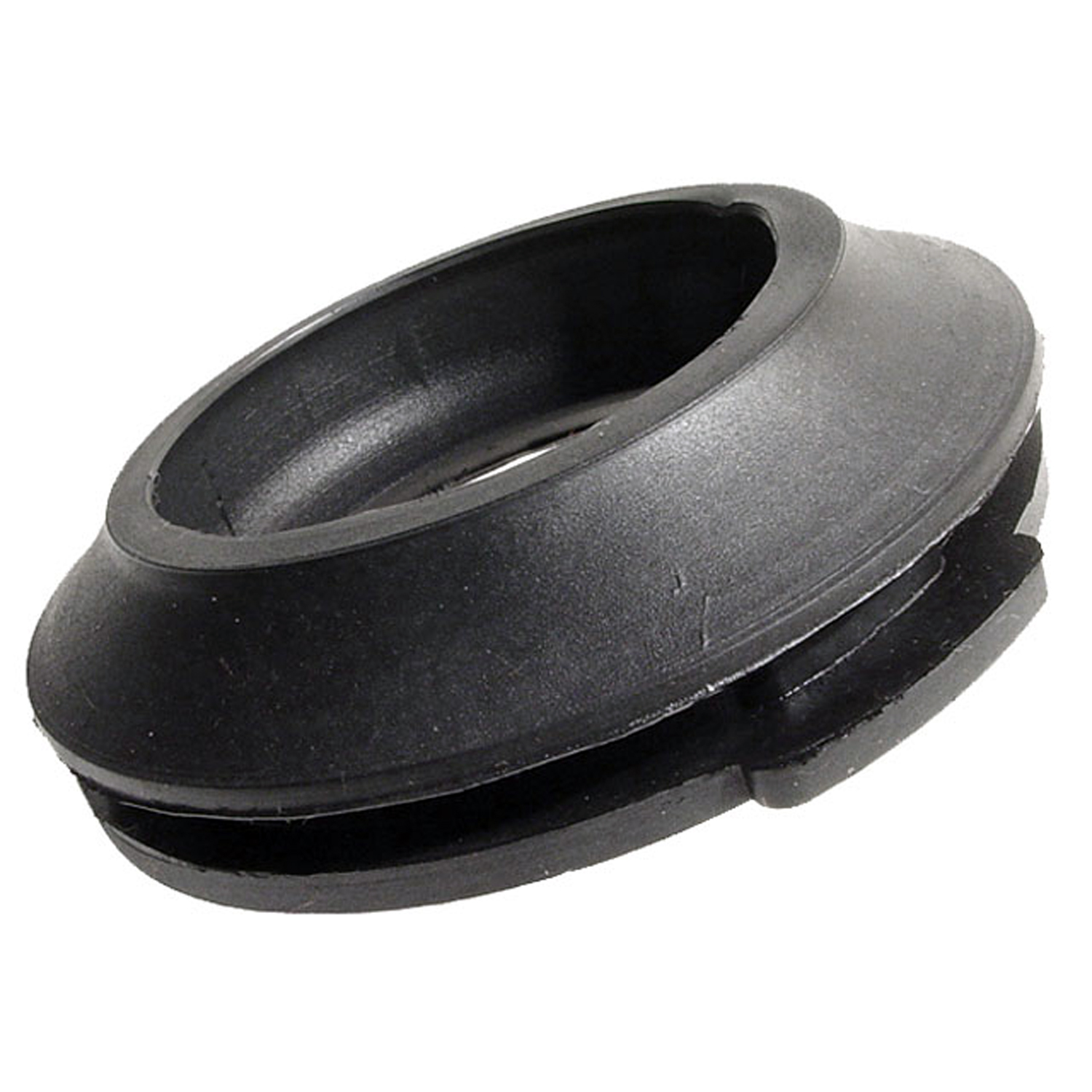 1956 Studebaker Commander Gas Filler Grommet. Perfect reproduction. Top 2-1/16" I.D-GF 45Gas Filler Grommet. Perfect reproduction. Top 2-1/16" I.D., 3-7/16" O.D. Each
1956 Studebaker Commander Gas Filler Grommet. Perfect reproduction. Top 2-1/16" I.D-GF 45Gas Filler Grommet. Perfect reproduction. Top 2-1/16" I.D., 3-7/16" O.D. Each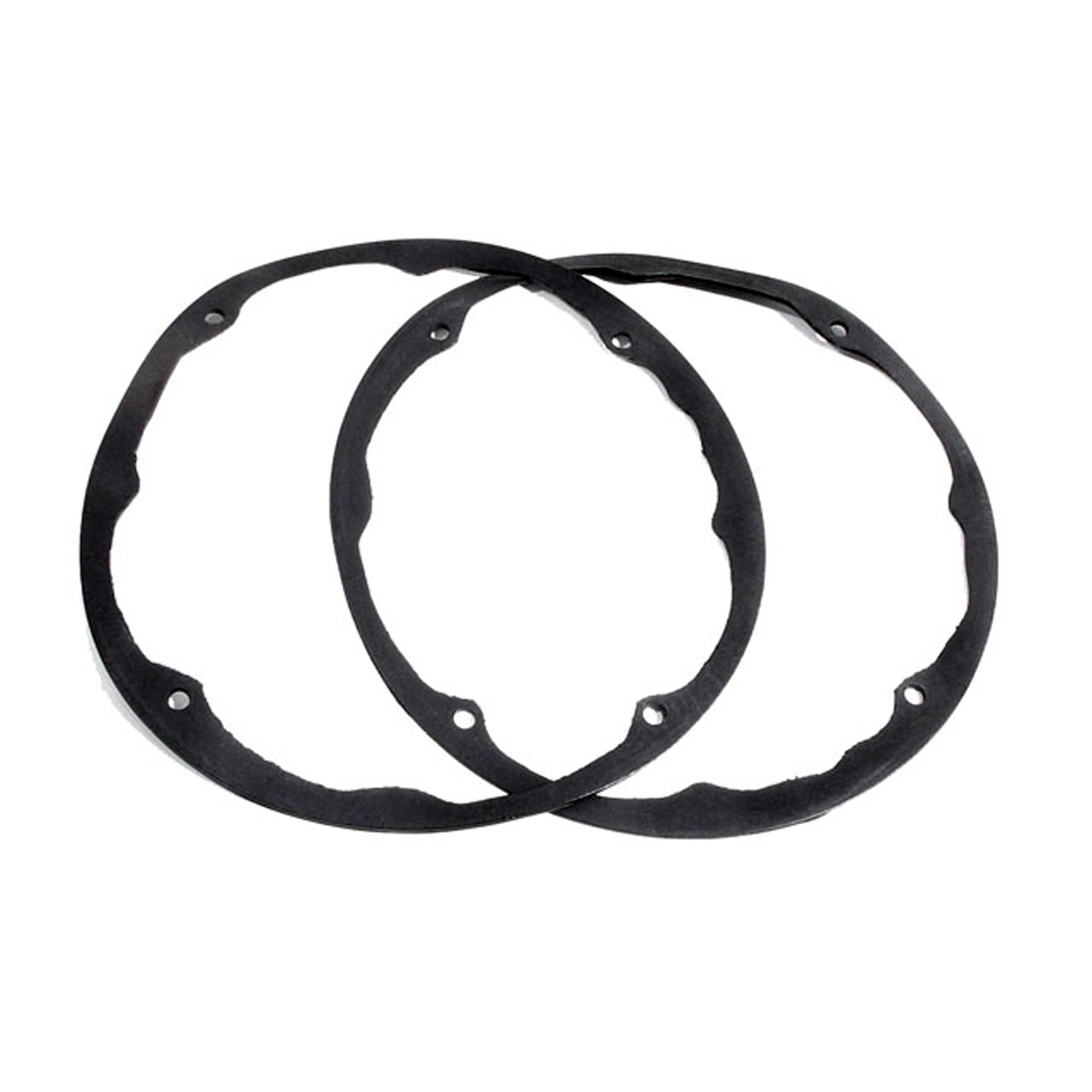 1956 Studebaker Commander Headlight Ring Seal. 8-5/8" O.D., 7-7/8" I.D. Pair-HR 16Headlight Ring Seal. 8-5/8" O.D., 7-7/8" I.D. Pair
1956 Studebaker Commander Headlight Ring Seal. 8-5/8" O.D., 7-7/8" I.D. Pair-HR 16Headlight Ring Seal. 8-5/8" O.D., 7-7/8" I.D. Pair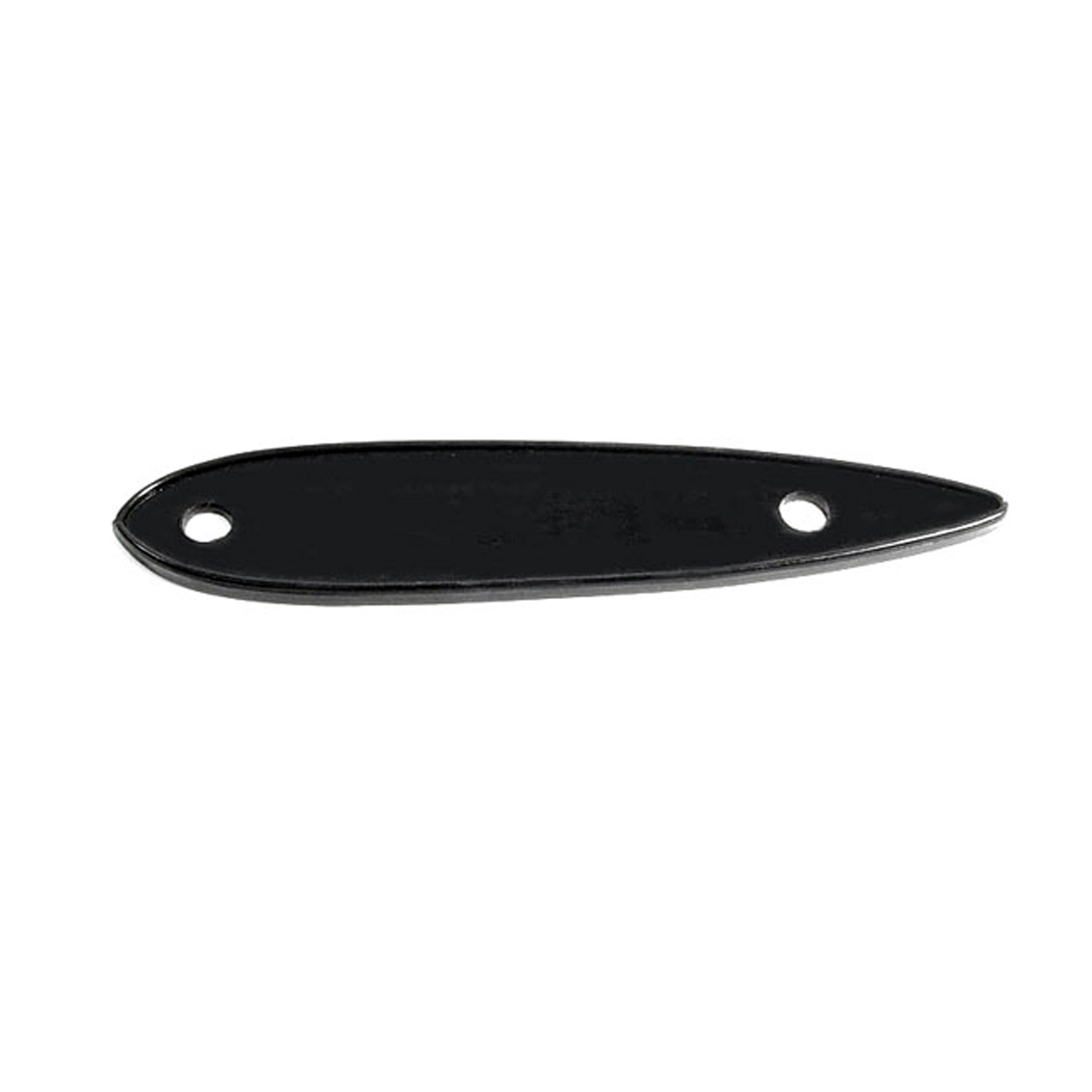 1956 Studebaker Commander Stratovue Mirror Base Pad. 1-3/8" wide X 6-1/8" long-MP 965-DStratovue Mirror Base Pad. 1-3/8" wide X 6-1/8" long. Each
1956 Studebaker Commander Stratovue Mirror Base Pad. 1-3/8" wide X 6-1/8" long-MP 965-DStratovue Mirror Base Pad. 1-3/8" wide X 6-1/8" long. Each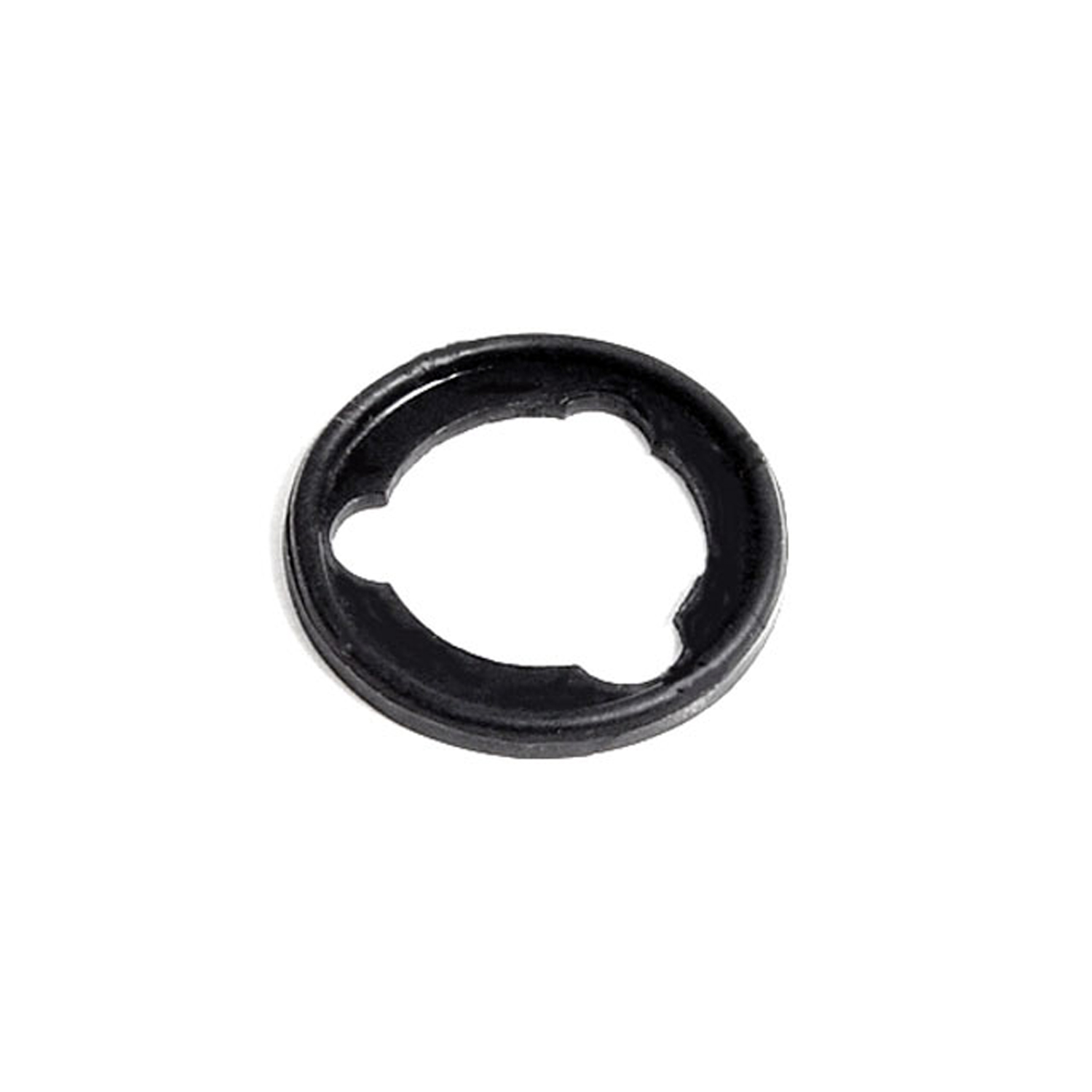 1956 Studebaker Commander Door Lock Pad. 1-1/8" O.D. Each-MP 979Door Lock Pad. 1-1/8" O.D. Each
1956 Studebaker Commander Door Lock Pad. 1-1/8" O.D. Each-MP 979Door Lock Pad. 1-1/8" O.D. Each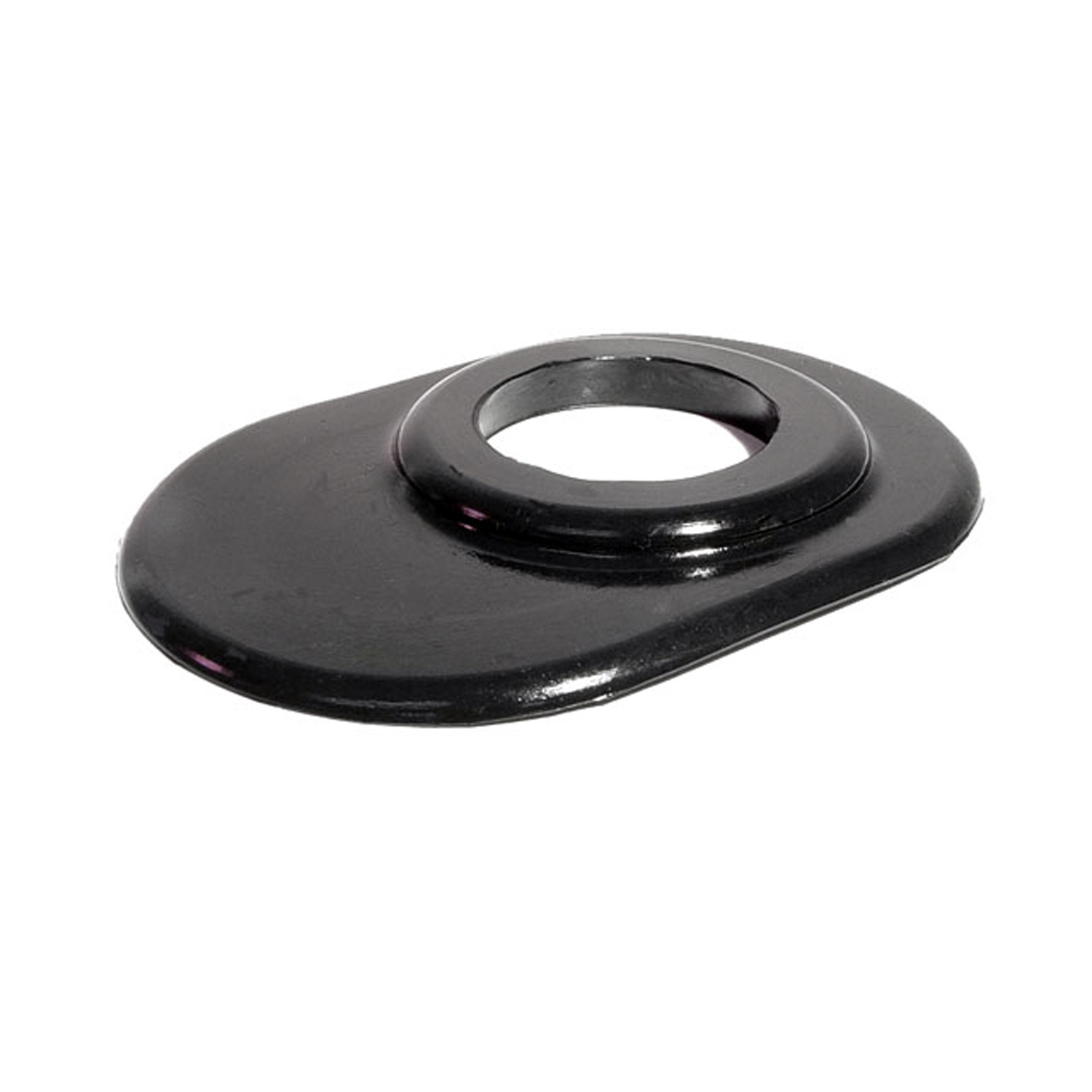 1956 Studebaker Commander Steering Column Grommet. For 3-speed models. Each-SC 24-ASteering Column Grommet. For 3-speed models. Each
1956 Studebaker Commander Steering Column Grommet. For 3-speed models. Each-SC 24-ASteering Column Grommet. For 3-speed models. Each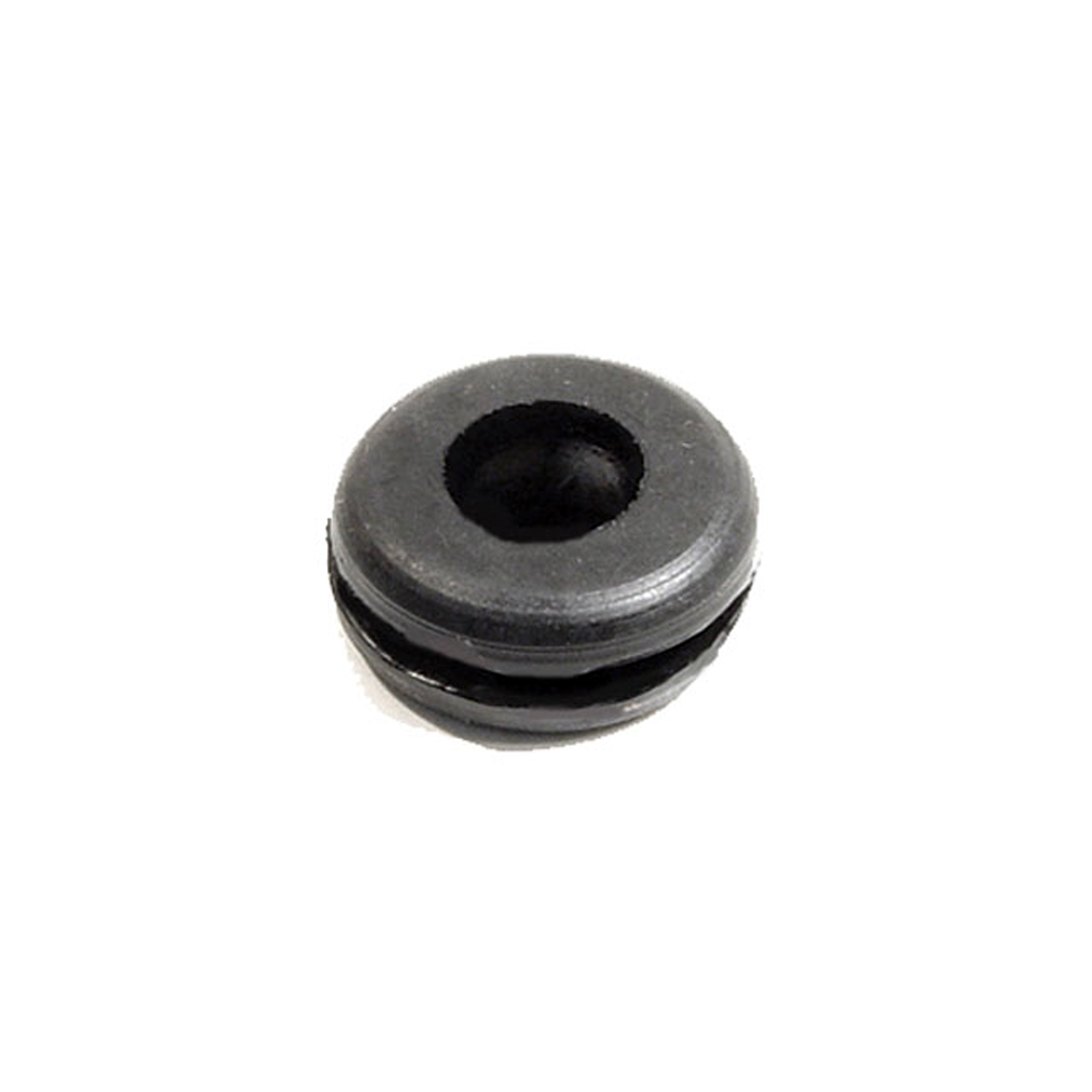 1956 Studebaker Commander Headlight & Tail-Light Wire Grommet. 3/8" I.D., 7/8" O.D-SM 13-AHeadlight & Tail-Light Wire Grommet. 3/8" I.D., 7/8" O.D. Each
1956 Studebaker Commander Headlight & Tail-Light Wire Grommet. 3/8" I.D., 7/8" O.D-SM 13-AHeadlight & Tail-Light Wire Grommet. 3/8" I.D., 7/8" O.D. Each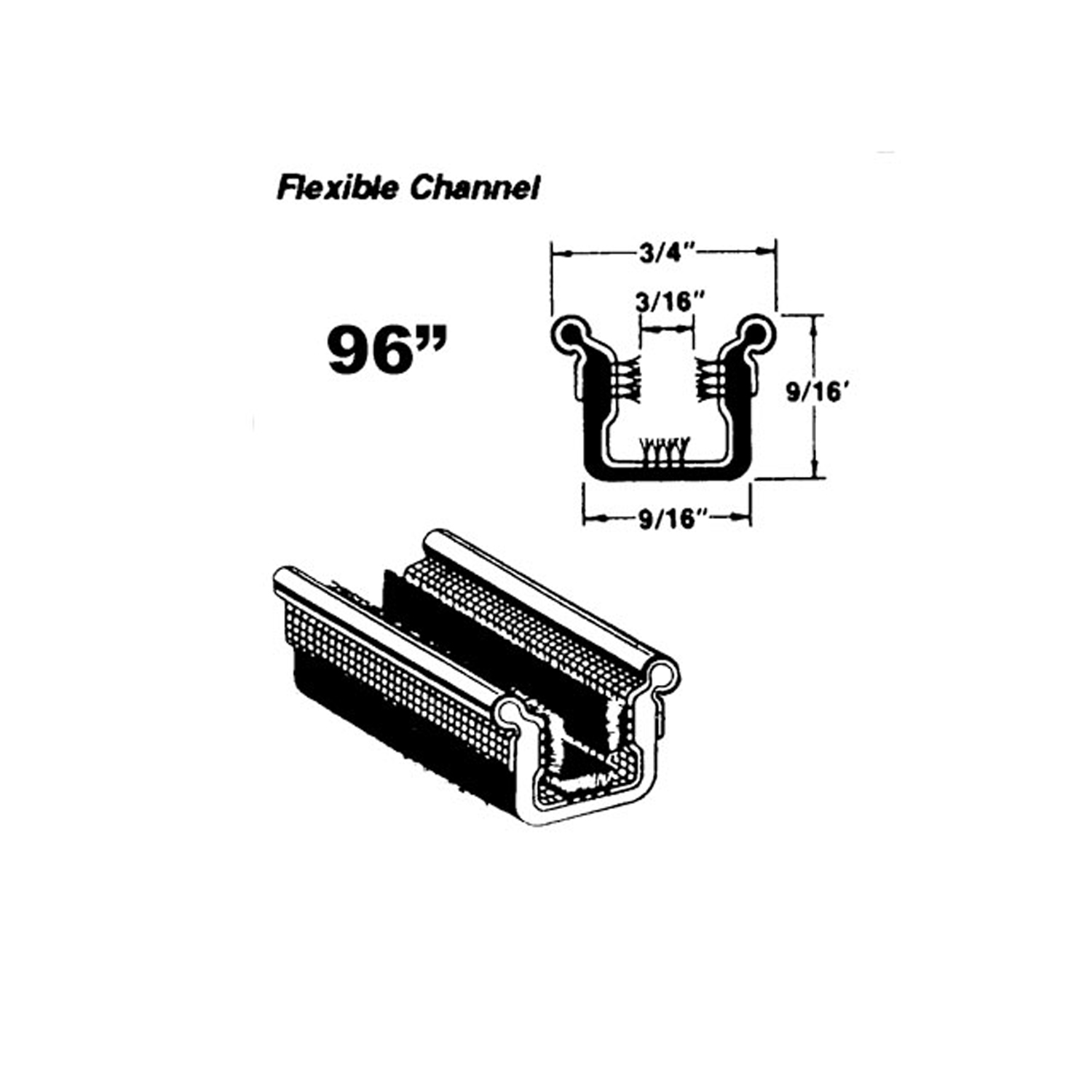 1956 Studebaker Commander Flexible window channel-WC 10-96Flexible window channel. Rubber covered with mohair lining and stainless steel bead. 96 in. long. Each. NOTE: $20 special shipping charge applies for domestic orders. Call or email for overseas shipping costs. Part can be sectioned in two or three equal lengths to reduce overseas shipping costs.
1956 Studebaker Commander Flexible window channel-WC 10-96Flexible window channel. Rubber covered with mohair lining and stainless steel bead. 96 in. long. Each. NOTE: $20 special shipping charge applies for domestic orders. Call or email for overseas shipping costs. Part can be sectioned in two or three equal lengths to reduce overseas shipping costs.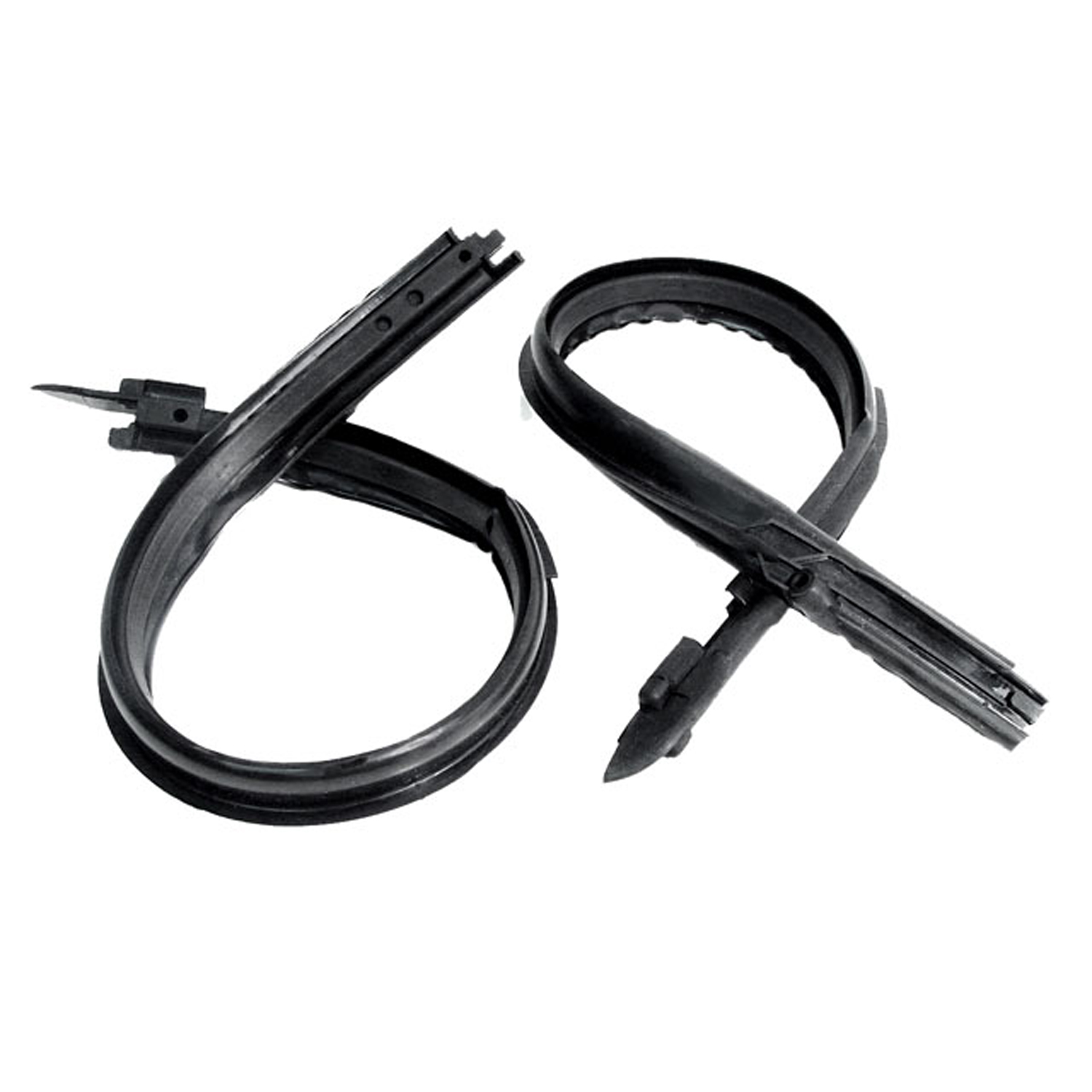 1956 Studebaker Commander Front Vent Window Seals-WR 9404Front Vent Window Seals. Will not fit Hardtops, only Pillar Models. Each piece 29" long. Pair
1956 Studebaker Commander Front Vent Window Seals-WR 9404Front Vent Window Seals. Will not fit Hardtops, only Pillar Models. Each piece 29" long. PairWhy Choose Metro?
For over 100 years, Metro Moulded Parts has been the pinnacle of quality in classic car restoration parts. Our commitment to precision and authenticity in every component ensures a perfect fit and an OEM-level appearance.
- Expert Craftsmanship & Quality: Each part is a testament to our dedication to reliability and perfection, crafted from original designs and thoroughly tested.
- Advanced Technology: We use cutting-edge techniques to create flawless, long-lasting parts that surpass others in performance.
- SuperSoft Sponge – The Ultimate Door Seal: Not only are our door seals 30% softer than competitors', but they're also guaranteed to never leak. They effectively reduce wind and road noise, enhancing your classic car's comfort and driving experience.
- Proudly American: Our parts are a product of American craftsmanship, made in the USA with a spirit of excellence and heritage.
- Unrivaled Warranty: We back our products with a 30-year industry-leading warranty, a testament to our confidence in their quality.
Join us in preserving the legacy of classic cars with parts that are crafted for perfection, not just made.

